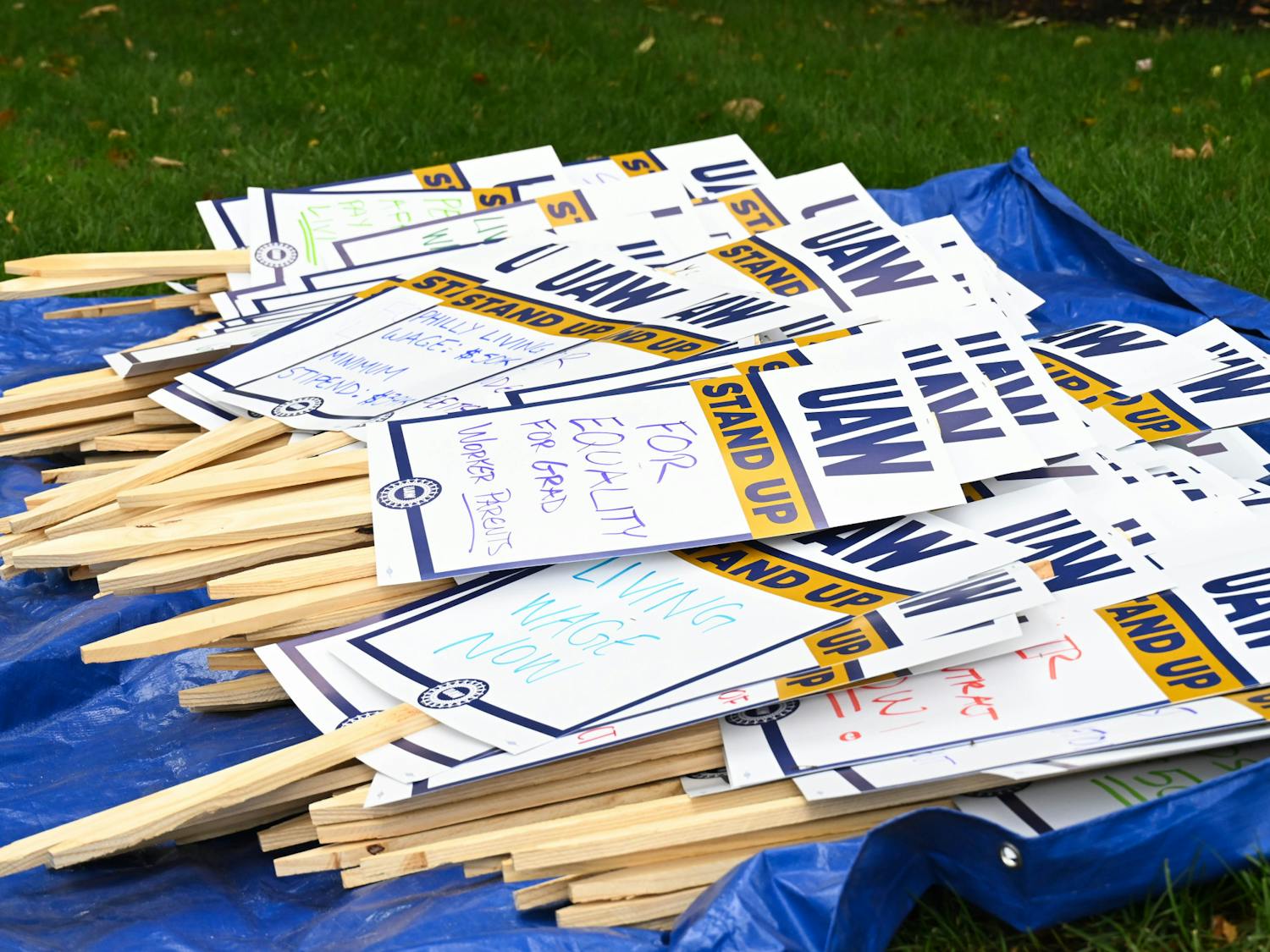Penn and other major local nonprofits, which once made millions of dollars in voluntary payments to Philadelphia, pay nothing today.
In a 1995 deal then heralded by the administration as a way to “pay our fair share,” Penn agreed to make a voluntary annual contribution of $1.93 million to the city.
The agreement had been the city’s attempt to recoup the cost of maintaining essential city services from Penn, which — like most nonprofits — does not pay taxes on much of the property it owns. These payments in lieu of taxes, or PILOTs, have been struck between many nonprofits and local governments around the country, most prominently with hospitals and universities.
Penn’s 1995 PILOT program — a five-year initial commitment — was not renewed.
Even though Penn makes no voluntary payments today, administrators say the University contributes to the city in many other significant ways.
How Penn contributes
PILOTs are contributions made to local governments as a way to offset the cost that cities bear to support nonprofits.
While nonprofits provide many useful services, they “also impose a cost on municipalities because they consume public services, such as police protection and roads, but normally do not pay taxes” on the property they own, according to a report published by the Lincoln Institute of Land Policy in 2010.
In 2011, Philadelphia received less than $500,000 in PILOTs, none of which came from Penn, Drexel or Temple universities or other major nonprofits in the area.
Penn President Amy Gutmann said the University contributes to Philadelphia in other ways.
“We are very committed to having a big economic impact on the city,” she said. “We’ve been cited as a model around this country of a university that has the most positive impact on its neighborhood and city.”
Among the ways in which it contributes are the maintenance of a private police force, upgrades to local sewer and water systems, the development of West Philadelphia and the University City District, the establishment of free clinics run by the graduate schools and support for the Penn Alexander School.
“It is clear from local policies that the services delivered by the ‘eds and meds’ in Philadelphia’s non-profit community outweigh any benefit that might be obtained through a voluntary PILOT program,” Penn Vice President for Government and Community affairs Jeffrey Cooper wrote in an email, referring to the educational and medical services the University provides.
Questions of duty
But former Pa. Gov. Ed Rendell, a 1965 College graduate, said he still believes Penn should restart its voluntary payments.
“The city does a lot of things for Penn it doesn’t get compensated for,” he said. “You could say Penn has a private police force. Yes, they do. But they depend on the Philadelphia Police Department, too.”
Daphne Kenyon, an economist at the Lincoln Institute of Land Policy who wrote the 2010 report on PILOTs, said Penn’s contributions to the city should not necessarily replace voluntary payments.
She cites Yale University’s PILOT program as an example to follow. Yale pays New Haven more than $8 million a year.
“Not only does Yale make the biggest PILOT payment of any school, but Yale does so much for economic development for New Haven,” Kenyon added.
Penn and Columbia University are the only two Ivy League universities that do not have a PILOT agreement with their local governments.

Brown University, which is in a contentious dispute with Providence over the amount of its PILOT, has stated that “Yale is a strong institutional citizen and is a model Brown has followed.”
Penn administrators, however, say the PILOT agreements of institutions in other cities should have no bearing on Penn’s decision.
“What other Ivy League universities may or may not do in relation to their hometowns has nothing to do with the issue of whether it is appropriate for the non-profit community in Philadelphia, including Penn, to make voluntary payments to the City,” Cooper wrote. “This is not an issue of educational policy, but rather one of municipal finance.”
The Pennsylvania Association of Nonprofit Organizations criticized the pressure for nonprofits to make voluntary payments in a 2009 letter to the Pennsylvania General Assembly.
David Ross, the organization’s public policy officer at the time, wrote, “PILOTs can adversely affect charities’ ability to provide programming and serve the needy in the community.
“Furthermore, PILOTS deplete critical charitable resources that the charity uses,” he added.
PILOTs in Philadelphia
The largest donor to Philadelphia in 2011 was Cathedral Village retirement community, which contributed more than $272,000.
Cathedral Village used to pay taxes to the city, until it was declared a purely public charity, said 1980 Penn graduate Cathy Ng, the organization’s executive vice president.
“We believe that we should contribute something for the services provided by the city,” Ng said. “We arrived at the PILOT amount with the city.”
The Lincoln Institute of Land Policy report found that “requests for PILOTs are often couched in terms of community responsibility and fairness.”
This was exactly the language used in 1994, when then-Philadelphia Mayor Rendell signed an executive order stating that “all nonprofit, non-governmental institutions in the City should pay their fair share for the municipal services and benefits they receive.”
The 1997 Institutions of Purely Public Charity Act, also known as Act 55, later defined what kinds of organizations were to be given tax exemptions. It also encouraged nonprofits with financial means to voluntarily contribute to “the cost of various local government services.”
It was actually David Cohen — Penn’s current chairman of the Board of Trustees and then-Rendell’s chief of staff — who gathered city officials and nonprofit leaders to discuss PILOTs soon after Rendell was elected, according to a 1999 article in The International Journal of Not-for-Profit Law.
By 1996, the city had arranged 42 voluntary contribution agreements with tax-exempt nonprofits, including with Penn. It received $8.7 million that year. By 1999, however, that sum was slashed to $4.7 million.
A 2009 study of the impact of tax-exempt property by Pennsylvania General Assembly’s Legislative Budget and Finance Committee chronicled the decline of Penn and other major institutions’ involvement in the PILOT program.
It put some of the blame for the discontinuation of the program on the financial instability of the healthcare industry in the late 1990s, when “the financial status of healthcare providers had dramatically changed.”
When the initial 1995 agreement expired, Penn did not renew the deal with the city, as this coincided with a time when Penn’s health system was forced to reduce its workforce by almost 10 percent, according to the report.
Kenyon said if Penn ever decides to make voluntary contributions to Philadelphia again, the deal should be beneficial to both parties.
“The most important point is that arrangements should be a win-win,” she said. “Philadelphia and Penn either prosper together or sink together.”
This story has been updated to clarify that David Ross represented Pennsylvania Association of Nonprofit Organizations in 2009. He no longer works with the organization.








